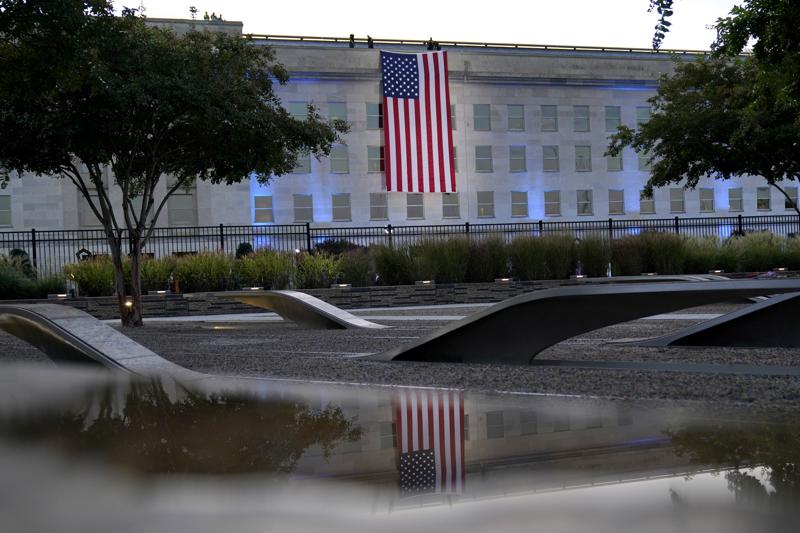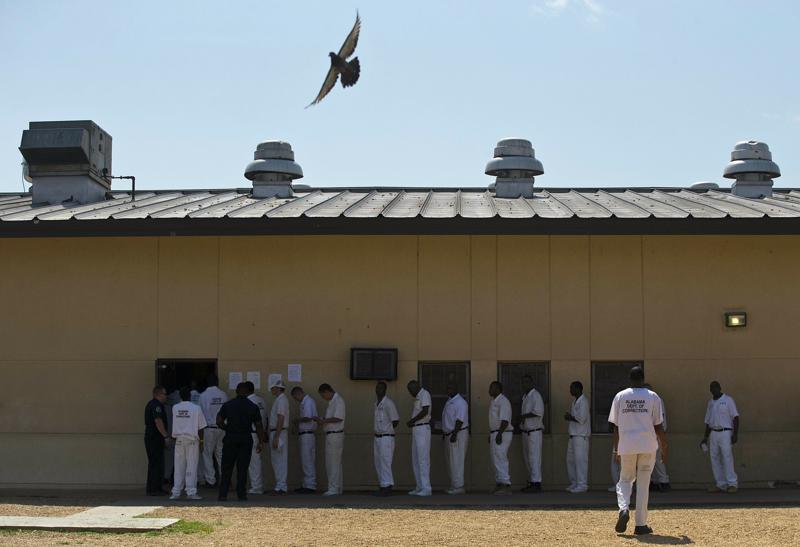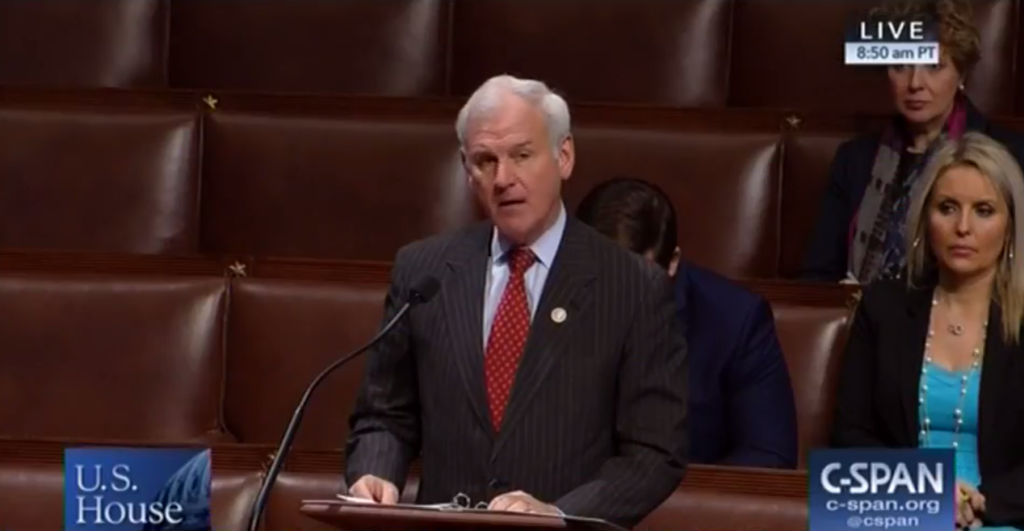Judge orders unsealing of redacted affidavit in Donald Trump search

A judge ordered the Justice Department on Thursday to make public a redacted version of the affidavit it relied on when federal agents searched the Florida estate of former President Donald Trump to look for classified documents. The directive from U.S. Magistrate Judge Bruce Reinhart came hours after federal law enforcement officials submitted under seal the portions of the affidavit that they want to keep secret as their investigation moves forward. The judge set a deadline of noon Friday for a redacted, or blacked-out, version of the document. The order means the public could soon get at least some additional details about what led FBI officials to search Mar-a-Lago on August 8 as part of an investigation into classified documents being retained at the Palm Beach property. Documents already made public as part of the investigation show that the FBI retrieved from the property 11 sets of classified documents, including information marked at the top secret level. Search warrant affidavits typically contain vital information about an investigation, with agents spelling out why they want to search a particular property and why they believe they are likely to find evidence of a potential crime there. In this case, though, the redactions proposed by the Justice Department are likely to be extensive given the sensitivity of the investigation and unprecedented nature of the search, lessening the chance that the public will receive a detailed glimpse of the basis for the search or the direction of the probe. In his order Thursday, Reinhart said the department had made compelling arguments to leave sealed broad swaths of the document that, if disclosed, would reveal grand jury information; the identities of witnesses and “uncharged parties,” and details about the investigation’s “strategy, direction, scope, sources, and methods.” But he also said he was satisfied “that the Government has met its burden of showing that its proposed redactions are narrowly tailored to serve the Government’s legitimate interest in the integrity of the ongoing investigation and are the least onerous alternative to sealing the entire Affidavit.” The department had earlier contested arguments by media organizations to make any portion of the affidavit public, saying the disclosure could contain private information about witnesses and about investigative tactics. But Reinhart, acknowledging the extraordinary public interest in the investigation, said last week that he was disinclined to keep the entire document sealed and told federal officials to submit to him in private the redactions it wanted to make. Multiple news media organizations, including The Associated Press, argued in court last week for the disclosure of the affidavit, citing the extraordinary public interest in the federal search of a former president’s home. Trump and some of his supporters have also encouraged the document’s release. After the Justice Department submitted its filing under seal on Thursday, the media coalition responded by asking the judge to unseal portions of the department’s brief and to direct the government, “going forward,” to file publicly a redacted version of any sealed document it submits. The groups noted that significant information about the investigation is already public. “At a minimum, any portions of the Brief that recite those facts about the investigation, without revealing additional ones not yet publicly available — in addition to any other portions that pose no threat to the investigation — should be unsealed,” the news organization wrote. They added, “If and when additional facts come to light and are confirmed to be accurate, or certain facts no longer pose a threat to the investigation for any other reason, there is no justification for maintaining them under seal either.” Republished with the permission of The Associated Press.
Justice Dept. to appeal order voiding travel mask mandate

The Justice Department is filing an appeal seeking to overturn a judge’s order that voided the federal mask mandate on planes and trains and in travel hubs, officials said Wednesday. The notice came minutes after the Centers for Disease Control and Prevention asked the Justice Department to appeal the decision handed down by a federal judge in Florida earlier this week. A notice of appeal was filed in federal court in Tampa. The CDC said in a statement Wednesday that it is its “continuing assessment that at this time, an order requiring masking in the indoor transportation corridor remains necessary for the public health.” A federal judge in Florida had struck down the national mask mandate for mass transit on Monday, leading airlines and airports to swiftly repeal their requirements that passengers wear face coverings. The Transportation Security Administration said Monday that it would it will no longer enforce the mask requirement. The CDC had recently extended the mask mandate, which was set to expire Monday, until May 3 to allow more time to study the BA.2 omicron subvariant, which is now responsible for the vast majority of U.S. cases. But the court ruling Monday had put that decision on hold. The CDC said it will continue to monitor public health conditions to determine if a mandate would remain necessary. It said it believes the mandate is “a lawful order, well within CDC’s legal authority to protect public health.” Justice Department spokesman Anthony Coley said Wednesday night that the department was filing the appeal “in light of today’s assessment by the CDC that an order requiring masking in the transportation corridor remains necessary to protect the public health.” After a winter surge fueled by the omicron variant that prompted record hospitalizations, the U.S. has seen a significant drop in virus spread in recent months, leading most states and cities to drop mask mandates. But several Northeast cities have seen a rise in hospitalizations in recent weeks, leading Philadelphia to bring back its mask mandate. Republished with the permission of the Associated Press.
Former guard sentenced for trying to bring drugs into prison

A former Alabama Department of Corrections guard was sentenced to more than seven years behind bars for distributing methamphetamine in the state prison where he worked. Senior U.S. District Court Judge Karon O. Bowdre sentenced Gary Charles Dixon, Jr., 36, on Wednesday to 87 months in prison on one count of distribution of 50 grams or more of methamphetamine. Dixon pleaded guilty to the charges in July. “Smuggling contraband into our state prisons compromises the safety of everyone in the facility,” U.S. Attorney Prim F. Escalona said in a news release. The U.S. attorney’s office said Dixon in 2020 attempted to smuggle 497 grams of methamphetamine into William E. Donaldson Correctional Facility in Bessemer where he was employed as a corrections officer. The Department of Justice last year sued Alabama, saying the state prisons for men are “riddled with prisoner-on-prisoner and guard-on-prisoner violence.” The Justice Department in 2019 cited illicit drugs as one of the contributing factors to the overall unconstitutional conditions along with understaffing, culture, management deficiencies, corruption, and other problems. The state has acknowledged problems in state prisons but has disputed the Justice Department’s allegations. Republished with the permission of the Associated Press.
FBI releases newly declassified record on September 11 attacks

A declassified FBI document related to logistical support given to two of the Saudi hijackers in the run-up to the Sept. 11 attacks details contacts the men had with Saudi associates in the United States but does not provide proof that senior kingdom officials were complicit in the plot. The document released Saturday, on the 20th anniversary of the attacks, is the first investigative record to be disclosed since President Joe Biden ordered a declassification review of materials that for years have remained out of public view. The 16-page document is a summary of an FBI interview done in 2015 with a man who had frequent contact with Saudi nationals in the U.S. who supported the first hijackers to arrive in the country before the attacks. Biden ordered the Justice Department and other agencies to conduct a declassification review and release what documents they can over the next six months. He was under pressure from victims’ families, who have long sought the records as they pursue a lawsuit in New York alleging that Saudi government officials supported the hijackers. The heavily blacked-out document was released hours after Biden attended Sept. 11 memorial events in New York, Pennsylvania, and at the Pentagon. Victims’ relatives had said they would object to Biden’s presence at those remembrances as long as the documents remained classified. The Saudi government has long denied any involvement in the attacks. The Saudi Embassy in Washington has supported the full declassification of all records as a way to “end the baseless allegations against the Kingdom once and for all.” The embassy said that any allegation that Saudi Arabia was complicit was “categorically false.” The documents have come out at a politically delicate time for the U.S. and Saudi Arabia, which have forged a strategic, if difficult, alliance, particularly on counterterrorism matters. The Biden administration in February released an intelligence assessment implicating Crown Prince Mohammed bin Salman in the 2018 killing of U.S.-based journalist Jamal Khashoggi but drew criticism from Democrats for avoiding a direct punishment of the royal himself. Victims’ relatives said the document’s release was a significant step in their effort to connect the attacks to Saudi Arabia. Brett Eagleson, whose father, Bruce, was killed in the World Trade Center attack, said the release of the FBI material “accelerates our pursuit of truth and justice.” Jim Kreindler, a lawyer for the victims’ relatives, said in a statement that “the findings and conclusions in this FBI investigation validate the arguments we have made in the litigation regarding the Saudi government’s responsibility for the 9/11 attacks. “This document, together with the public evidence gathered to date, provides a blueprint for how (al-Qaida) operated inside the US with the active, knowing support of the Saudi government,” he said. That includes, he said, Saudi officials exchanging phone calls among themselves and al-Qaida operatives and then having “accidental meetings” with the hijackers while providing them with assistance to get settled and find flight schools. Regarding Sept. 11, there has been speculation of official involvement since shortly after the attacks, when it was revealed that 15 of the 19 attackers were Saudis. Osama bin Laden, the leader of al-Qaida at the time, was from a prominent family in the kingdom. The U.S. investigated some Saudi diplomats and others with Saudi government ties who knew hijackers after they arrived in the U.S., according to previously declassified documents. Still, the 9/11 Commission report in 2004 found “no evidence that the Saudi government as an institution or senior Saudi officials individually funded” the attacks that al-Qaida masterminded, though it noted Saudi-linked charities could have diverted money to the group. Particular scrutiny has centered on the first two hijackers to arrive in the U.S., Nawaf al-Hazmi and Khalid al-Mihdhar, and the support they received. In February 2000, shortly after their arrival in Southern California, they encountered at a halal restaurant a Saudi national named Omar al-Bayoumi who helped them find and lease an apartment in San Diego. He had ties to the Saudi government and had earlier attracted FBI scrutiny. Bayoumi has described his restaurant meeting with Hazmi and Mihdhar as a “chance encounter,” and the FBI, during its interview, made multiple attempts to ascertain if that characterization was accurate or if the meeting had actually been arranged in advance, according to the document. The 2015 interview that forms the basis of the FBI document was of a man who was applying for U.S. citizenship and who years earlier had repeated contacts with Saudi nationals, who investigators said, provided “significant logistical support” to several of the hijackers. Among the man’s contacts was Bayoumi, according to the document. The man’s identity is blacked out throughout the document, but he is described as having worked at the Saudi consulate in Los Angeles. Also referenced in the document is Fahad al-Thumairy, at the time an accredited diplomat at the Saudi Consulate in Los Angeles who investigators say led an extremist faction at his mosque. The document says communications analysis identified a seven-minute phone call in 1999 from Thumairy’s phone to the Saudi Arabian family home phone of two brothers who later were detained at the Guantanamo Bay, Cuba, prison. Republished with the permission of the Associated Press.
Alabama asks court to dismiss part of suit over prisons

A Justice Department lawsuit challenging sanitation and safety concerns in Alabama’s men’s prisons is too vague and should not be allowed to go forward, the state said in asking a court to dismiss part of the case. The federal government has not specified which prisons are troubled by problems like broken locks, insufficient or faulty surveillance cameras and flooding caused by poor plumbing, the state argued in documents filed Wednesday, so the Department of Corrections can’t defend itself. Even if the Justice Department spelled out specific problems, there’s no evidence they are a pattern in the state prison system, the state argued. And, it said, allegations about inadequate staffing are covered in other litigation and should not be included in the lawsuit, which claims Alabama prisons are so bad they violate the rights of inmates. The state has acknowledged problems with its prisons for years while denying they were so bad that conditions are unconstitutional. The government sued the state in December after warning in 2019 and again in 2020 about conditions in state prisons, which are designed to hold 12,388 people but were overcrowded with 16,810 prisoners in April, according to a state report. The population dropped by about 3,700 during the pandemic. In May, the government claimed in an updated lawsuit that state prisons remain deadly, noting that inmate-on-inmate homicides had increased from already high levels. The state asked a judge to dismiss parts of the complaint dealing with unsafe and unsanitary conditions and staffing, which are key parts of the lawsuit. The Justice Department said the homicide rate in Alabama’s prisons for men in 2018 was more than seven times the national average for prisons and in fiscal year 2020, at least 16 prisoners were killed by other prisoners, according to available state data. Federal officials also said the prison system is not accurately reporting prison deaths. A plan for private companies to build new prisons and the state lease them fell apart amid opposition from communities and activists and questions over financing, and Gov. Kay Ivey said earlier this month the state is looking at other options. Republished with the permission of the Associated Press.
Alabama asks judge to dismiss federal prison lawsuit

Alabama is asking a judge to dismiss a Justice Department lawsuit over state prison conditions, arguing the incidents of violence cited in the case do not rise to the level of a constitutional violation. In a Monday court filing, an attorney for Alabama argued the federal lawsuit makes sweeping generalizations about the use of excessive force by officers as well as inmate-on-inmate violence. The state also argued that another ongoing court case is already addressing staffing concerns raised in the lawsuit. “Plaintiff’s isolated examples of inmate-on-inmate violence fail to suggest an egregious or flagrant constitutional violation,” a lawyer for the state wrote in the court filing. In seeking to dismiss the case, Alabama argued that the existence of inmate-on-inmate violence does not automatically represent a constitutional violation. The court filing cited incidents where an inmate was killed in a dorm and another where an inmate was seriously burned after having microwaved baby oil and coffee grounds poured on his face and body. “While these certainly constitute serious allegations, Plaintiff does not specifically allege that anyone associated with the state acted or failed to act in a manner that caused these alleged attacks,” a lawyer for the state wrote. The state also argued that excessive force claims require a showing that officials applied force maliciously and sadistically for the very purpose of causing harm. The Justice Department filed a lawsuit against Alabama in December, claiming the state is failing to protect male prisoners from inmate-on-inmate violence and excessive force at the hands of prison staff. The assistant Attorney General for the Civil Rights Division, Eric Dreiband, said in a statement that Alabama’s prisons “are riddled with prisoner-on-prisoner and guard-on-prisoner violence.” The lawsuit came after two federal reports detailing incidents in state lockups. A July report, in an apparent reference to the death of inmate Steven Davis, said that officers “continued to strike the prisoner after he dropped any weapons and posed no threat.” In another, federal investigators alleged a prison guard beat a handcuffed prisoner in a medical unit while shouting, “I am the reaper of death, now say my name!” The Justice Department lawsuit also raised concerns about chronically understaffed prisons. The state responded that a federal judge in an ongoing lawsuit over mental health care has already ordered the state to increase staff. Republished with the permission of the Associated Press.
DOJ: Alabama inmates are subjected to excessive force

The U.S. Department of Justice announced Thursday that it believes Alabama’s prisons for men are unconstitutional because inmates are subjected to excessive force at the hands of prison staff. In its report, the Justice Department detailed a chilling litany of incidents, including a prison guard beating a handcuffed prisoner in a medical unit while shouting, “I am the reaper of death, now say my name!” as the prisoner begged the officer to kill him. It is the second time within 18 months that the Justice Department has accused Alabama of housing male inmates in unconstitutional conditions in a prison system considered one of the most understaffed and violent in the country. “Our investigation found reasonable cause to believe that there is a pattern or practice of using excessive force against prisoners in Alabama’s prisons for men,” Assistant Attorney General Eric Dreiband for the Civil Rights Division said in a statement. Dreiband said the Justice Department hopes to work with Alabama to resolve the department’s concerns. In findings sent to the state, federal investigators wrote that “uses of excessive force in Alabama’s prisons are common” and that severe overcrowding and understaffing plays a role in the violence. “The severe and pervasive overcrowding increases tensions and escalates episodes of violence between prisoners, which lead to uses of force. At the same time, the understaffing tends to generate a need for more frequent uses of force than would otherwise occur if officers operated at full strength,” federal investigators wrote. Alabama Gov. Kay Ivey said in a statement that her administration remains hopeful that they will reach a resolution to all of the department’s allegations. “I am as committed as ever to improving prison safety through necessary infrastructure investment, increased correctional staffing, comprehensive mental-health care services, and effective rehabilitation programs, among other items. We all desire an effective, Alabama solution to this Alabama problem, and my administration will put in the hard work and long hours necessary to achieve that result,” the Republican governor said. The Justice Department noted that correctional officers in multiple prisons have pleaded guilty or been convicted of using excessive force against prisoners, including one incident when at least four officers beat a prisoner to death. The 28-page Justice Department report listed multiple examples of violence by prison staff after reviewing files and visiting several state prisons. The Justice Department said: — In December 2018, a correctional officer brutally hit, kicked, and struck a handcuffed prisoner with an expandable baton in the Ventress medical unit. During the beating, all four of the nurses heard the officer yell something to the effect of, “I am the reaper of death, now say my name!” and the prisoner begged the officer to kill him. — In September 2019, a lieutenant at Ventress prison lifted a handcuffed inmate off the ground and slammed him on a concrete floor several times, knocking him unconscious. The prisoner was unable to breathe on his own, was intubated, and taken to an outside hospital, where medical personnel administered CPR several times to keep the prisoner alive. — In February 2019, a sergeant at Elmore prison beat two handcuffed prisoners, suspected of retrieving contraband, striking one prisoner with a collapsible baton approximately 19 times on his head, legs, arms, back, and body. The sergeant who assaulted the prisoners later filed a false report about the incident. The sergeant and two correctional officers pleaded guilty in federal court. “The results of the investigation into excessive force issues within Alabama’s prisons is distressing and continues to require real and immediate attention,” said Louis Franklin, the U.S. Attorney for the Middle District of Alabama. The announcement comes more than a year after the Justice Department released a scathing report that said male inmates face excessive inmate-on-inmate violence and sexual abuse in facilities that are not sanitary, safe, or secure. The department is in negotiations with the state in an attempt to reach an agreement. The finding released Thursday were the continuation of the investigation first launched in 2016. Republished with the permission of the Associated Press.
Bradley Byrne: The facts about Ukraine

With all the allegations being made against President Donald Trump, it’s important to examine some background and facts. First, let’s talk about what has been going on in Ukraine since the fall of the Soviet Union. Ukraine is one of the most corrupt countries on earth. Like many former Soviet countries, oligarchs control almost all the political power. Corruption is so rampant that many American business people refuse to operate there. For nearly 30 years, Republican and Democrat Presidents have pressured Ukraine to reform without much success. Part of that outreach was aimed at preventing Russia from gaining influence there. But five years ago, Russia invaded Ukraine, and the two countries have been at war ever since. After the invasion, President Barack Obama rightly began providing them non-lethal aide. But to maintain goodwill with the Russians, he would not sell them weapons. Now let’s move to 2016. During the 2016 campaign, President Trump ran on a deep skepticism of foreign aid. Partly as a result, senior members of the Ukrainian government took Secretary Hillary Clinton’s side. After his victory, Ukrainian officials scrambled to make amends with President Trump. Despite President Trump’s understandable skepticism towards Ukraine, he pursued policies towards Ukraine that began leading to progress. He began selling real weapons to Ukraine to help them fight the Russians, with enormous positive effects. However, a few individuals in the Administration tried to convince President Trump he should forget Ukraine’s past and immediately embrace its new President. They began, in their own words, working to change President Trump’s mind. It was office gossip among a handful of these individuals that led to the impeachment investigation. The drama started with the “whistleblower” (who lacked firsthand knowledge of what he reportedly blew the whistle on) alleging that President Trump made “demands” on President Zelensky on a phone call. He alleged President Trump threatened to withhold security assistance to Ukraine for political favors. But despite this allegation, President Zelensky has publicly, clearly, and repeatedly denied any demands were ever made on him. And the Justice Department reviewed this allegation and declined to pursue a criminal investigation. Further, President Trump released the transcript, and it showed that neither person said one word about the hold on that call! You would think that if President Trump were trying to use the aid for extortion, he would have at least mentioned it. President Zelensky did not mention the funds either because he did not know they were on hold and, as the transcript confirms, President Trump never told him! If that is the case, this would be a very strange quid pro quo indeed. Let’s use common sense here. With President Trump’s clear skepticism of foreign aid and Ukraine’s reputation for corruption, is it surprising his Administration would want to review millions in aid to a new Ukrainian President and parliament? In contradiction to the bureaucratic gossip fueling this latest Democrat impeachment fantasy, not one person has testified that they had any direct knowledge that President Trump ordered aid held in exchange for a political favor. Witnesses have speculated about the reason for the hold, but when pressed, they’ve all said some version of “I don’t know.” Despite this sham process, we have no evidence that President Trump ordered any kind of quid pro quo. The Ukrainians got the aid money, within days of even finding out it was on hold, and they got the meetings with President Trump and the Vice President that they wanted. There is no impeachable offense here, but most Democrats know that. This is all about defeating President Trump in the 2020 election, but I think their efforts will backfire as the American people learn the truth. Armed with the facts, I won’t quit fighting against this sham impeachment scheme.
Tally of children split at border tops 5,400 in new count

U.S. immigration authorities separated more than 1,500 children from their parents at the Mexico border early in the Trump administration, the American Civil Liberties Union said Thursday, bringing the total number of children separated since July 2017 to more than 5,400. The ACLU said the administration told its attorneys that 1,556 children were separated from July 1, 2017, to June 26, 2018, when a federal judge in San Diego ordered that children in government custody be reunited with their parents. Children from that period can be difficult to find because the government had inadequate tracking systems. Volunteers working with the ACLU are searching for some of them and their parents by going door-to-door in Guatemala and Honduras. Of those separated during the 12-month period, 207 were under 5, said attorney Lee Gelernt of the ACLU, which sued to stop family separation. Five were under a year old, 26 were a year old, 40 were 2 years old, 76 were 3, and 60 were 4. “It is shocking that 1,556 more families, including babies and toddlers, join the thousands of others already torn apart by this inhumane and illegal policy,” said Gelernt. “Families have suffered tremendously, and some may never recover.” The Justice Department declined to comment. The count is a milestone in accounting for families who have been touched by Trump’s widely maligned effort against illegal immigration. The government identified 2,814 separated children who were in government custody on June 26, 2018, nearly all of whom have been reunited. The U.S. Health and Human Services Department’s internal watchdog said in January that potentially thousands more had been separated since July 2017, prompting U.S. District Judge Dana Sabraw to give the administration six months to identify them. The ACLU said it received the last batch of 1,556 names one day ahead of Friday’s deadline. The administration has also separated 1,090 children since the judge ordered a halt to the practice in June 2018 except in limited circumstances, like threats to child safety or doubts about whether the adult is really the parent. The ACLU said the authorities have abused their discretion by separating families over dubious allegations and minor transgressions including traffic offenses. It has asked Sabraw to more narrowly define circumstances that would justify separation, which the administration has opposed. With Thursday’s disclosure, the number of children separated since July 2017 reached 5,460. The government lacked tracking systems when the administration formally launched a “zero tolerance” policy in the spring of 2018 to criminally prosecute every adult who entered the country illegally from Mexico, sparking an international outcry when parents couldn’t find their children. Poor tracking before the spring of 2018 complicates the task of accounting for children who were separated early on. As of Oct. 16, the ACLU said, volunteers couldn’t reach 362 families by phone because numbers didn’t work or the sponsor who took custody was unable or unwilling to provide contact information for the parent, prompting the door-to-door searches in Central America. Since retreating on family separation, the administration has tried other ways to reverse a major surge in asylum seekers, many of them Central American families.Tens of thousands of Central Americans and Cubans have been returned to Mexico this year to wait for immigration court hearings, instead of being released in the United States with notices to appear in court. Last month, the administration introduced a policy to deny asylum to anyone who passes through another country on the way to the U.S. border with Mexico without seeking protection there first. By Elliot Spagat Associated Press. Republished with the permission of the Associated Press.
James Comey violated FBI policies in handling of memos

Former FBI Director James Comey violated FBI policies in his handling of memos documenting private conversations with President Donald Trump, the Justice Department’s inspector general said Thursday. The watchdog office said Comey broke bureau rules by giving one memo containing unclassified information to a friend with instructions to share the contents with a reporter. Comey also failed to return his memos to the FBI after he was dismissed in May 2017, retaining copies of some of them in a safe at home, and shared them with his personal lawyers without permission from the FBI, the report said. “By not safeguarding sensitive information obtained during the course of his FBI employment, and by using it to create public pressure for official action, Comey set a dangerous example for the over 35,000 current FBI employees — and the many thousands more former FBI employees — who similarly have access to or knowledge of non-public information,” the report said. The report is the second in as many years to criticize Comey’s actions as FBI director, following a separate inspector general rebuke for decisions made during the investigation into Hillary Clinton’s use of a private email server. It is one of multiple inspector general investigations undertaken in the last three years into the decisions and actions of Comey and other senior FBI leaders. Trump, who has long regarded Comey as one of his principal antagonists in a law enforcement community he sees as biased against him, cheered the conclusions on Twitter. He wrote: “Perhaps never in the history of our Country has someone been more thoroughly disgraced and excoriated than James Comey in the just released Inspector General’s Report. He should be ashamed of himself!” The White House in a separate statement called Comey a “proven liar and leaker.”But the report denied Trump and his supporters, who have repeatedly accused Comey of leaking classified information, total vindication. It found that none of the information shared by him or his attorneys with anyone in the media was classified. The Justice Department has declined to prosecute Comey. Comey seized on that point in defending himself on Twitter, saying, “I don’t need a public apology from those who defamed me, but a quick message with a ‘sorry we lied about you’ would be nice.” He also added: “And to all those who’ve spent two years talking about me ‘going to jail’ or being a ‘liar and a leaker’ — ask yourselves why you still trust people who gave you bad info for so long, including the president.” At issue in the report are seven memos Comey wrote between January 2017 and April 2017 about conversations with Trump that he found unnerving or unusual. These include a Trump Tower briefing at which Comey advised the president-elect that there was salacious and unverified information about his ties to Moscow circulating in Washington; a dinner at which Comey says Trump asked him for loyalty and an Oval Office meeting weeks later at which Comey says the president asked him to drop an investigation into former national security adviser Michael Flynn. One week after he was fired, Comey provided a copy of the memo about Flynn to Dan Richman, his personal lawyer and a close friend, and instructed him to share the contents with a specific reporter from The New York Times. Comey has said he wanted to make details of that conversation public to prompt the appointment of a special counsel to lead the FBI’s investigation into ties between Russia and the Trump campaign. Former FBI Director Robert Mueller was appointed special counsel one day after the story broke. The inspector general’s office found Comey’s rationale lacking. “In a country built on the rule of law, it is of utmost importance that all FBI employees adhere to Department and FBI policies, particularly when confronted by what appear to be extraordinary circumstances or compelling personal convictions. Comey had several other lawful options available to him to advocate for the appointment of a Special Counsel, which he told us was his goal in making the disclosure,” the report says. “What was not permitted was the unauthorized disclosure of sensitive investigative information, obtained during the course of FBI employment, in order to achieve a personally desired outcome,” it adds. After Comey’s firing, the FBI determined that four of the memos contained information classified at either the “secret” or “confidential” level. The memo about the Flynn interaction that Comey sent to Richman did not contain any classified information, the report said. Comey said he considered his memos to be personal rather than government documents, and that it never would’ve occurred to him to give them back to the FBI after he was fired. The inspector general’s office disagreed, citing policy that FBI employees must give up all documents containing FBI information once they leave the bureau. FBI agents retrieved four of Comey’s memos from his house weeks after he was fired.The office of Inspector General Michael Horowitz also is investigating the FBI’s Russia investigation and expected to wrap up soon. Last year, the watchdog office concluded that former FBI Deputy Director Andrew McCabe had misrepresented under oath his involvement in a news media disclosure, and referred him for possible prosecution. That matter remains open with the U.S. Attorney’s Office in Washington. By Eric Tucker Associated Press Follow Eric Tucker on Twitter at https://www.twitter.com/etuckerAP Republished with the permission of the Associated Press.
US submits extradition request for WikiLeaks founder Julian Assange

The United States government has formally submitted an extradition request to the United Kingdom for WikiLeaks founder Julian Assange, a Justice Department official said Tuesday. Assange faces an 18-count indictment that accuses him of soliciting and publishing classified information and of conspiring with former Army private Chelsea Manning to crack a Defense Department computer password. That indictment, which includes Espionage Act charges, was issued by the Justice Department last month and is pending in federal court in Alexandria, Virginia. The extradition request had been expected ever since U.S. authorities first announced a criminal case against Assange. Justice Department spokesman Marc Raimondi said it was submitted to the United Kingdom. The 47-year-old Assange was evicted on April 11 from the Ecuadorian Embassy in London, where he had been holed up since 2012 after Ecuador granted him political asylum. He was arrested by British police and is currently serving a 50-week sentence for jumping bail. Sweden also seeks him for questioning about an alleged rape, which Assange has denied. Assange was initially charged with a single computer crime violation on allegations that he worked with Manning to crack a government password. Some legal experts have said the additional Espionage Act charges might slow or complicate the extradition process to the extent the United Kingdom views them as political offenses and therefore exempt from extradition. Manning, who spent seven years in a military prison for delivering a trove of classified information to Assange before having her sentence commuted by then-President Barack Obama, has been jailed for civil contempt in Virginia after refusing to testify before a grand jury investigating WikiLeaks. By Eric Tucker Associated Press. Follow Eric Tucker on Twitter at https://www.twitter.com/etuckerAP Republished with the permission of the Associated Press.
US says ex-intel official defected to Iran, revealed secrets

A former U.S. Air Force counterintelligence specialist who defected to Iran despite warnings from the FBI has been charged with revealing classified information to the Tehran government, including the code name and secret mission of a Pentagon program, prosecutors said Wednesday. The Justice Department also accused Monica Elfriede Witt, 39, of betraying former colleagues in the U.S. intelligence community by feeding details about their personal and professional lives to Iran. Four hackers linked to the Iranian government, charged in the same indictment, used that information to target the intelligence workers online, prosecutors said. Witt had been on the FBI’s radar at least a year before she defected after she attended an Iranian conference and appeared in anti-American videos. She was warned about her activities, but reassured agents that she would not provide sensitive information about her work if she returned to Iran. She was not arrested. “Once a holder of a top secret security clearance, Monica Witt actively sought opportunities to undermine the United States and support the government of Iran — a country which poses a serious threat to our national security,” said FBI executive assistant director Jay Tabb, the bureau’s top national security official. Tabb said “she provided information that could cause serious damage to national security,” though he did not provide specifics. Witt remains at large in Iran, as do the four hackers, who prosecutors say were acting on behalf of the government-linked Iranian Revolutionary Guard, prosecutors said. That group has been designated by the U.S. government as promoting terrorism. The hackers, using imposter Facebook personas, then targeted those same officials and were even able at one point to join a private Facebook group composed primarily of retired government workers, the indictment says. The hackers sent the targets messages and emails that purported to be legitimate but instead contained malicious software that, if opened, would have given them access to the officials’ computer and network. The Texas native served in the Air Force between 1997 and 2008, where she was trained in Farsi — the predominant language of Iran — and was deployed overseas on classified counterintelligence missions, including to the Middle East. She then found work as a Defense Department contractor. She defected to Iran in 2013 after being invited to two all-expense-paid conferences in the country that the Justice Department says promoted anti-Western propaganda and condemned American moral standards. She was a Defense Department contractor at the time. The Treasury Department on Wednesday sanctioned the New Horizon Organization, which sponsored the conferences Witt attended. American officials say the conferences, which promote Holocaust denial and conspiracy theories, serve as a platform for Iran to recruit and collect intelligence. Witt first traveled to a “Hollywoodism” conference in 2012, when she appeared in Iranian television videos in which she identified herself as a former U.S. service member with. She was warned that May by FBI agents that she was a potential target for recruitment by Iranian intelligence. “She chose not to heed our warning that travel to Iran could potentially make her susceptible to recruitment,” Tabb said. “She continued to travel.” She attended the same conference the following year and was hired by an unnamed individual to assist in the filming of an anti-American propaganda commercial. Given free housing and computer equipment, she went to work for the Iranians, turning over information about a classified Defense Department program and assembling into “target packages” research she conducted into the family lives, locations and missions of former colleagues. The indictment includes snippets of dialogue between Witt and the person who recruited her her, identified only as Individual 1. In 2012, for instance, the person wrote her, “should i thank the sec of defense…u were well trained. Witt replied with a smiley emoticon, “LOL thank the sec of defense? For me? Well, I loved the work, and I am endeavoring to put the training I received to good use instead of evil. ?? Thanks for giving me the opportunity,” according to the indictment. Using a typed smiley-face, she later told the same, unnamed person, “If all else fails, I just may go public with a program and do like Snowden.” That’s a reference to Edward Snowden, a former NSA contractor who leaked classified U.S. information. “Our intelligence professionals swear an oath to protect our country, and we trust them to uphold their oath. With good reason,” said Assistant Attorney General John Demers, the head of the Justice Department’s national security division. “But every great while, one of these trusted people fails us.” Officials would not elaborate on why the indictment was brought six years after her detection, except to say that they had to move classified intelligence into an unclassified format to be used in a pending criminal proceeding. The Justice Department officials would not say whether Witt’s prosecution was connected to an American-born Iranian television anchorwoman who was recently released after being detained by the FBI as a material witness in an undisclosed U.S. case. Marzieh Hashemi works for the Press TV network’s English-language service. She has not been charged with any crimes. Federal law allows judges to order witnesses to be detained if the government can prove that their testimony has extraordinary value for a criminal case and that they would be a flight risk and unlikely to respond to a subpoena. The statute generally requires those witnesses to be promptly released once they are deposed. Republished with permission from the Associated Press

